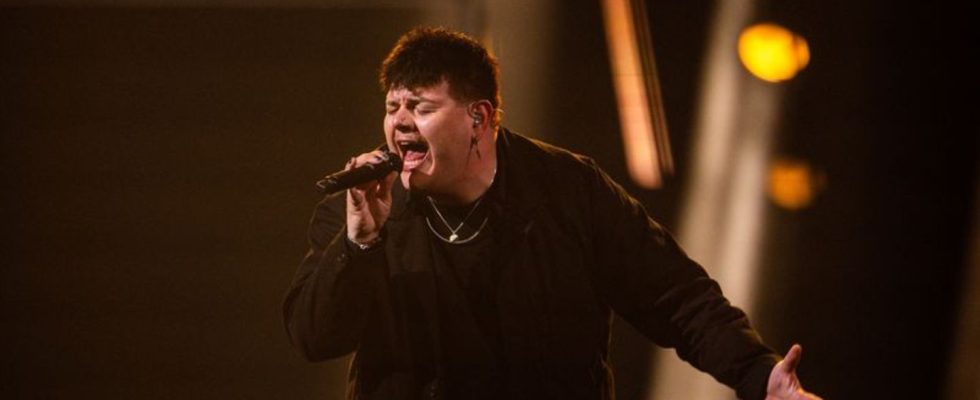Eurovision Song Contest
ESC final under security precautions
Isaak competes for Germany with the song “Always On The Run”. photo
© Jens Büttner/dpa
The big ESC final takes place in Malmö. However, the music party is not immune to uncertainty and unrest in the city.
Protests against Israel’s participation have already been announced in Malmö for the final day. During the second semi-final, thousands of people were on the streets and protesting, while Israeli artist Eden Golan was on stage in the Malmö Arena with her song “Hurricane”. For safety reasons, the singer must be closely accompanied by staff. According to the police, the protests were peaceful. The ESC is avowedly a non-political event, but often in the wake of world politics.
For Golan, the headwinds did not diminish her success – she secured Israel a place in the final. Israel made up a lot of ground in the bookmakers’ odds after the performance. This is traditionally seen as a sure sign that she will be well received by the audience in the final and thus gives her a realistic chance of winning.
The acts Baby Lasagna from Croatia (“Rim Tim Tagi Dim”) and Nemo from Switzerland (“The Code”) are considered to have particularly great opportunities. This year, Germany is in third place out of 26, after Sweden and Ukraine and ahead of Luxembourg. Thorsten Schorn will lead the final evening as a commentator for the German audience for the first time. He succeeds Peter Urban, who commented on the ESC for 25 years. Viewers can vote by phone call, text message and with an app.

